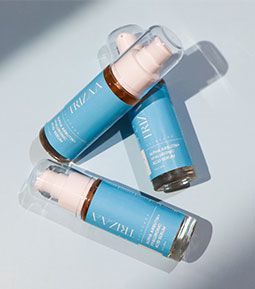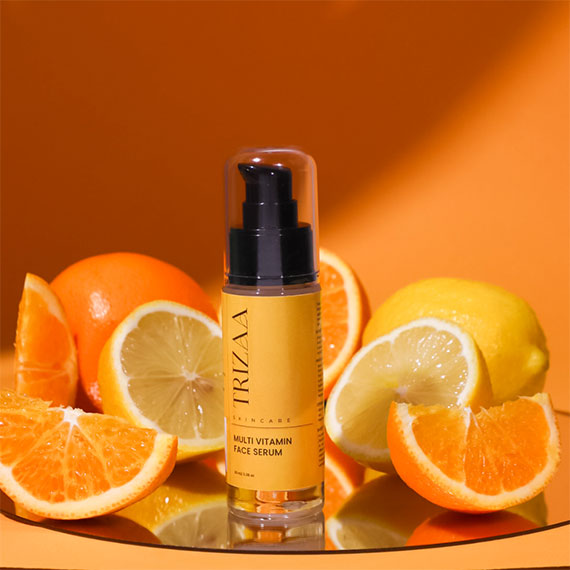While face serums can work wonders on your skin by themselves, serum pairing can take it several notches higher. Serum pairing is an effective way to boost the efficacy of your favourite serums to achieve your skin goals with ease. However, there’s a catch to this- you need to use the right combinations of serums! A combination like retinol with vitamin C can damage your skin severely. Vitamin C is a favourite skin MVP for most of us. However, by pairing it with the right actives, we can take our skincare game to the next level.
What does Vitamin C do for the skin?
Vitamin C serums can help us achieve radiant and glowing skin. It boosts collagen development to reduce lines and wrinkles while preventing premature skin ageing. Vitamin C also aids in even toning the skin and reduces blemishes and hyperpigmentation. However, vitamin C is photosensitive so it is necessary to use a broad-spectrum SPF during the day.
While Vitamin C helps you achieve radiant and youthful skin, you can pair it with some potent actives to give your skin dual benefits.
How to Pair Vitamin C with other serums for different results?
Vitamin C can be paired with several mild actives to amp up your skincare routine:
- Vitamin C + Niacinamide: while vitamin C helps even tone and boosts skin radiance, niacinamide helps even skin texture and minimises the appearance of pores. Niacinamide is also effective in controlling sebum production and helps even out pigmentation. Vitamin C and Niacinamide can be a great combination for oily skin types and people with uneven skin tone and texture.
- Vitamin C + Vitamin E: both these vitamins complement each other well as both are antioxidants. Vitamin E helps nourish the skin and improves protection against the sun. when used together, they help fight free radicals more efficaciously. Using a serum that contains both Vitamin C and E can be highly beneficial for your skin.
- Vitamin C + Hyaluronic Acid: this pairing is for all the dry skin types out there. While Hyaluronic acid provides the skin with a surge of hydration and moisturises, Vitamin C brightens. This safe and effective combo is perfect for achieving glowing, plump, and healthy-looking skin.
The aforementioned combos are great for skin and can do wonders. On the other hand, using the wrong combination can cause skin damage. Here’s what you should avoid pairing with Vitamin C:
- AHAs and BHAs
- Retinols
- Salicylic Acid
Now that you know how to pair your favourite Vitamin C serums, go ahead and step up your skincare game.






